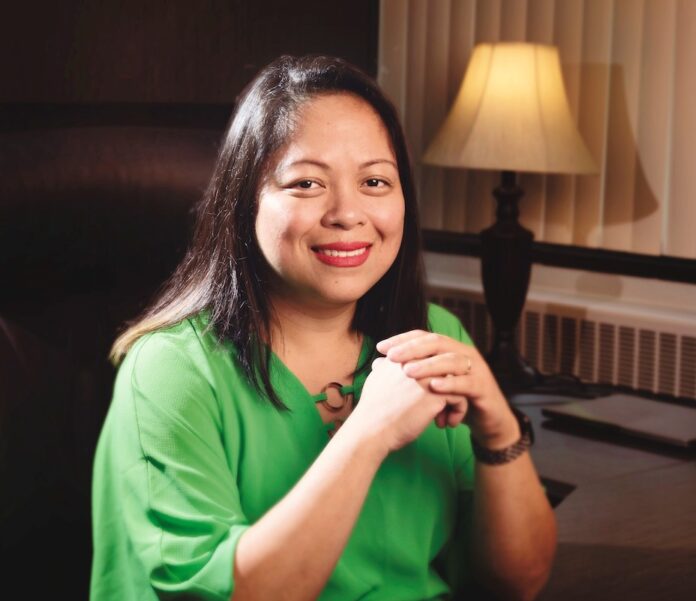I didn’t realize the extent of my privilege until I looked back and traced my journey from being a social worker in the Philippines to my current role as President and Chief Executive Officer of Blanche River Health, a two-site hospital in Kirkland Lake and Englehart, located in Northeastern Ontario.
Social Work was not a popular nor known profession in the Philippines back in the 90s. The stereotypical association was philanthropic in nature, with many expressing bewilderment that there was a whole degree associated with giving relief goods. I knew firsthand because those were the comments thrown my way after family and friends learned of my degree of choice. It was not my primary choice, but it was one of the few remaining programs available if I wanted to get a scholarship.
What came as a surprise was the deep appreciation of the learnings throughout the program. In a developing country context, social work’s curriculum was centered on individuals, groups, and communities, highlighting the person in environment concept, conflict management, group facilitation and community development.
Community development was a strong core program due to the realities of urban poverty and rural underdevelopment. Resources were scarce so our training was in leveraging the system and the communities as our primary clientele when providing services instead of individuals. This was not the same focus when I moved to Canada and completed my Master of Social Work. In a developed country context, I found the core programs to be highly individualistic with a strong focus on an anti-oppressive lens and advanced clinical practice skills.
Aside from earning two post-secondary degrees in Social Work in two different countries, I also practiced the profession as a frontline Social Worker for five years before switching to management.
As I reflect back, I was amazed at how much my fundamental leadership precepts benefited from what I learned in Social Work:
Person in environment and systems thinking
An individual cannot and should not be viewed as a separated, isolated entity from his/her system. To understand the individual is to understand the history, interconnections, and the social and physical environment. As a leader, this training helped me evaluate problems within the context of intricate and interrelated systems. It helped me understand that there is no such thing as quick fixes. It helped me view problems and situations within their context and aimed for sustainable solutions by leveraging the resources available and encouraging out of the box thinking.
Anti-oppressive framework and critical thinking
Learning the anti-oppressive framework helped me unpack my own biases and prejudices. This was a pivotal learning as it sharpened my understanding of self as it relates to others. As a hospital CEO, being aware of the power that I hold in my position was just one part of the equation. I learned to continuously reflect on my own thought processes and the rationale behind reactions and decisions. I also learned to view individuals and situations within context, seeking to understand first, and having a broader understanding on where an individual may be coming from. This skill set is deeply embedded in my own leadership practice as I pursue truth and justice in my everyday world.
Conflict management and group dynamics
Learning to view individuals within their context allows me to look behind the person’s presentation and drill down to the core issue behind a complaint, a feedback, and a situation. My professional training helped me regulate and set aside my emotional reactions and focus on where the person in front of me is coming from. This is a key skill set in conflict management and resolution. I remember learning various techniques in de-escalating situations and in facilitating conversations, including understanding the verbal, non-verbal, and paraverbal cues around me. I adjust my communication styles accordingly. These skills continue to serve me well as a leader especially since leadership is predominantly centered on managing relationships.
Purposeful sharing of self
One of Social Work’s core principles is the purposeful sharing of self as part of the therapeutic process. In a leadership context, sharing personal vulnerability, sharing snippets of my history and context, with clear and intentional purpose in mind, allowed people around me to be vulnerable as well and to see me as a person occupying a role. This helped me engage with people in meaningful ways and is the basis of my collaborative persona.
Social Work as a profession is all about people. It is a “helping” profession but it goes beyond individual needs. It recognizes the role of groups, communities, and systems as a whole and it trains you to be a facilitator of sustainable changes. And as a leader in healthcare, with all the complexities that we face in our day to day world, I feel fully equipped to navigate my world because of who I was trained
to be.
Going back in time, Social Work was not only my primary choice, but my only choice.
By Jorge VanSlyke


